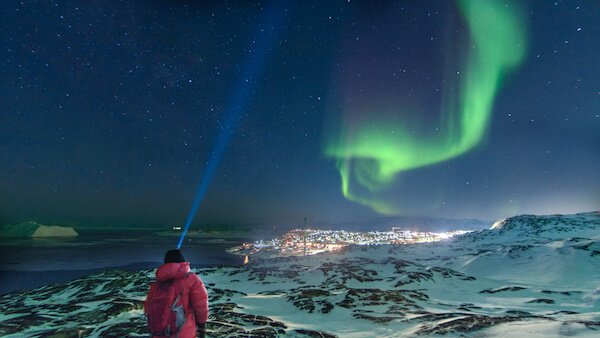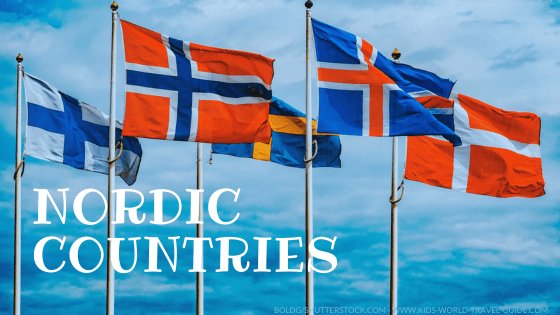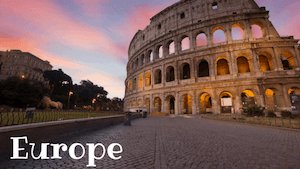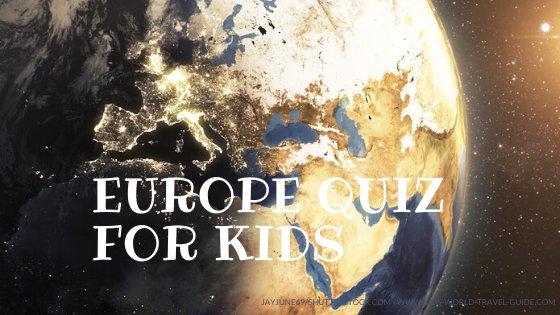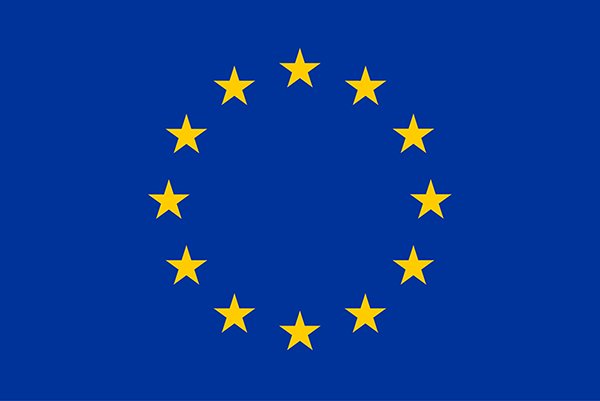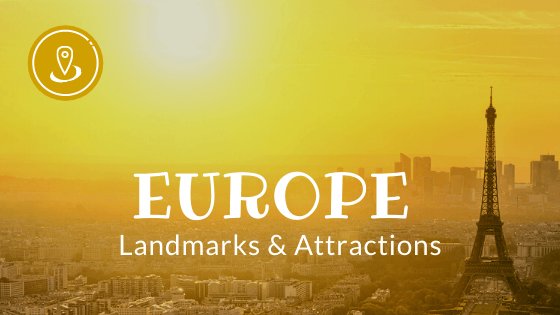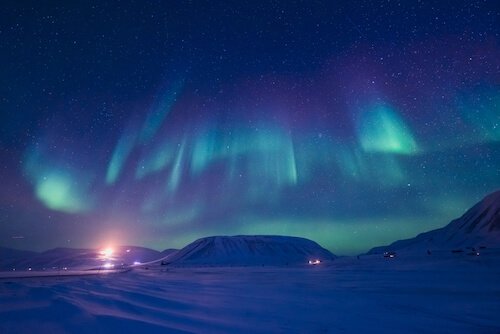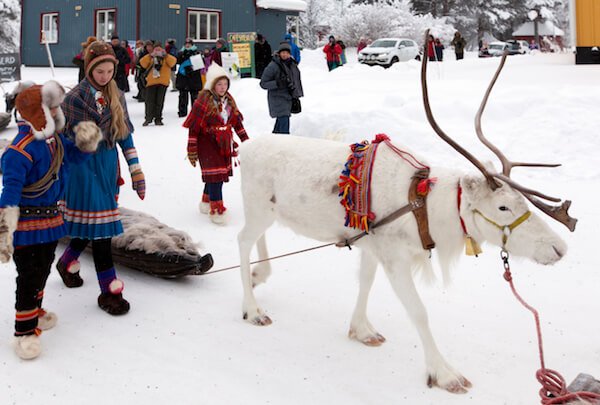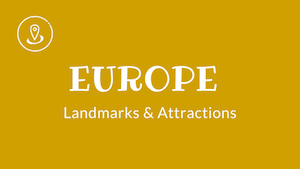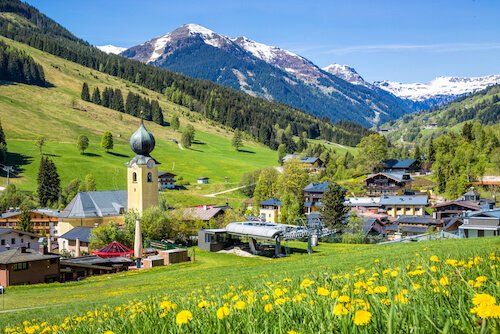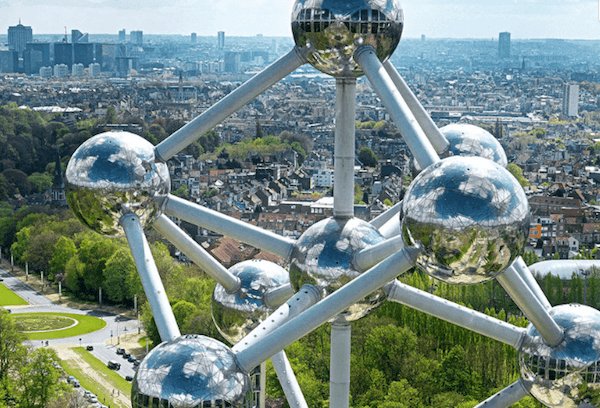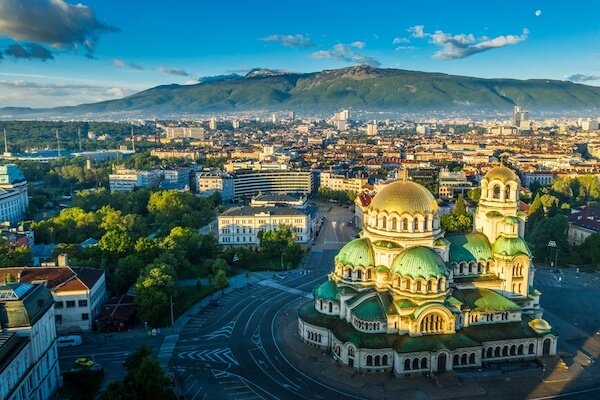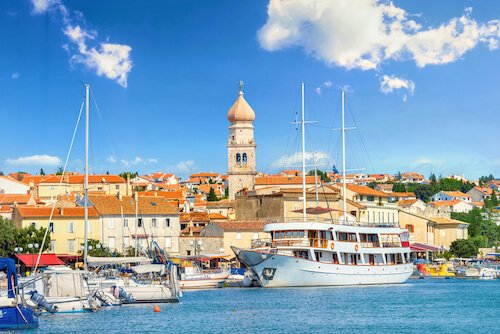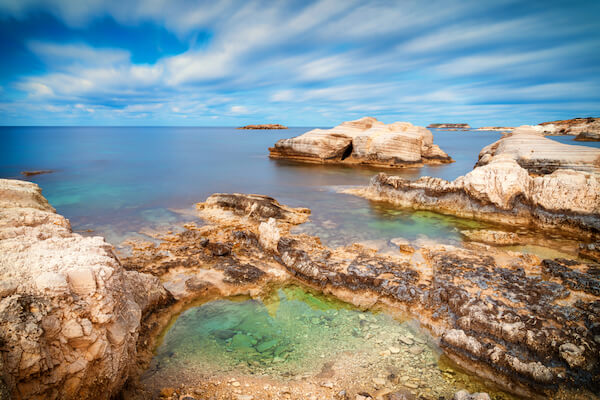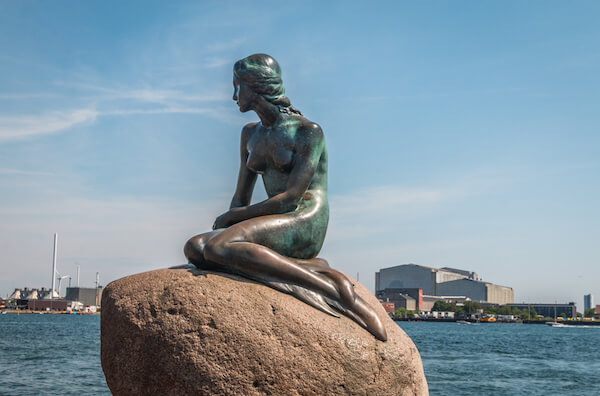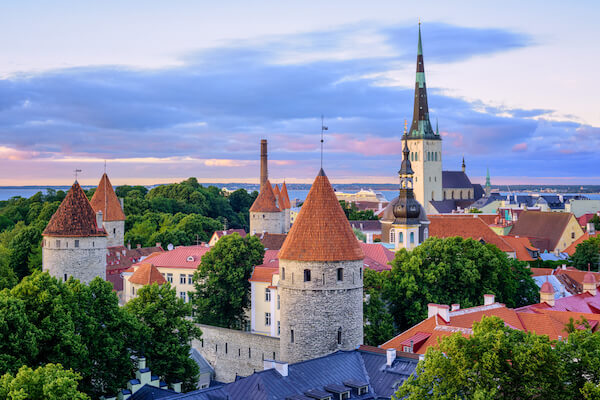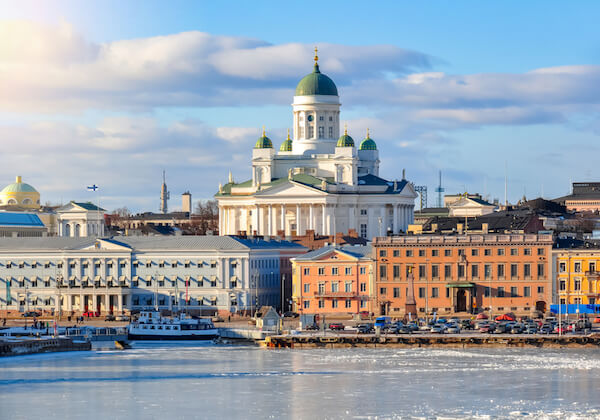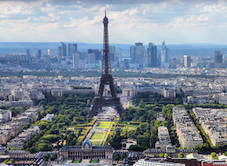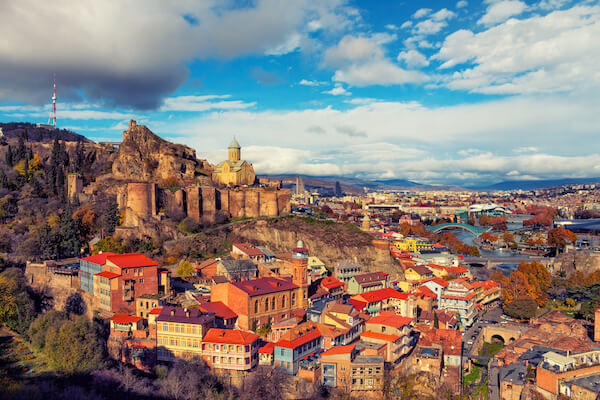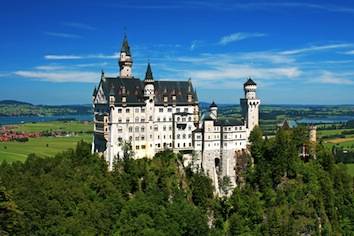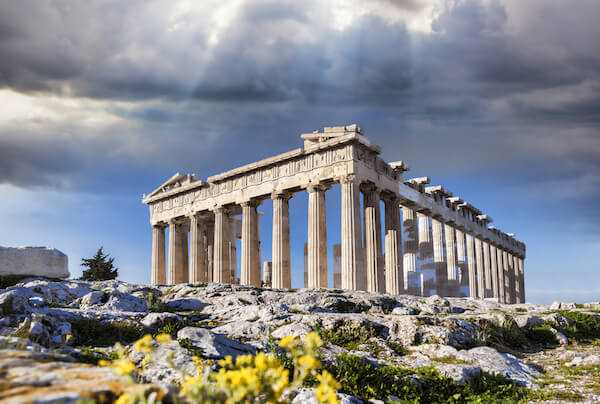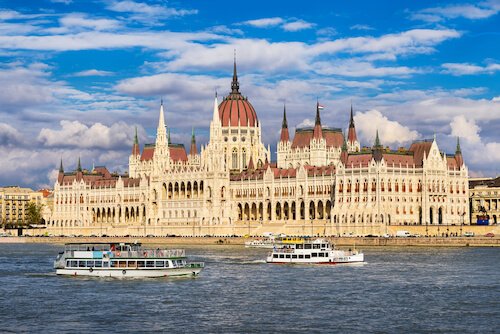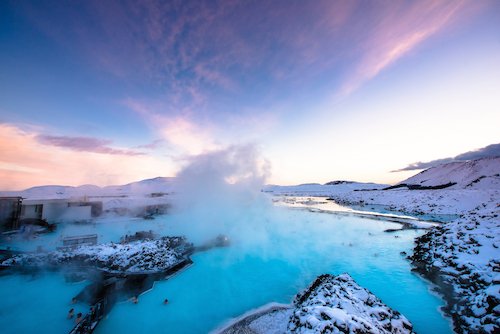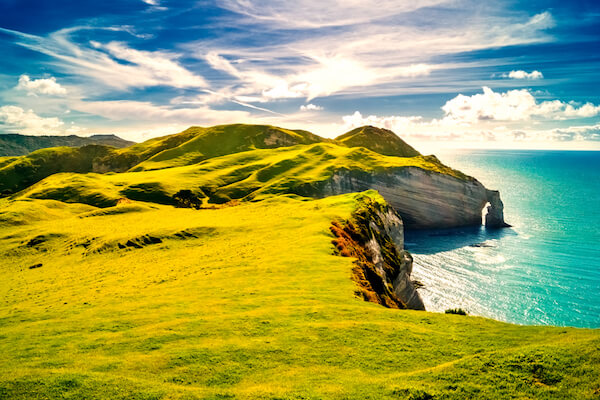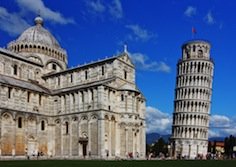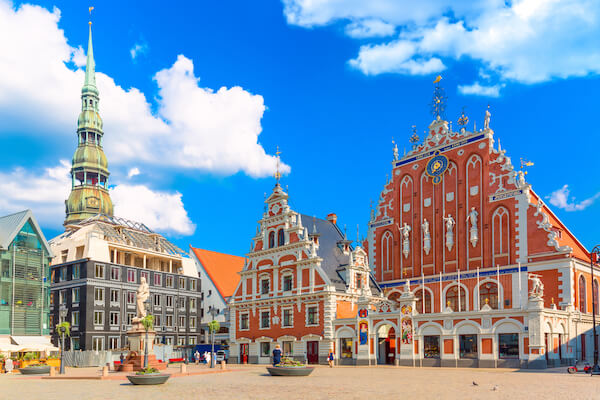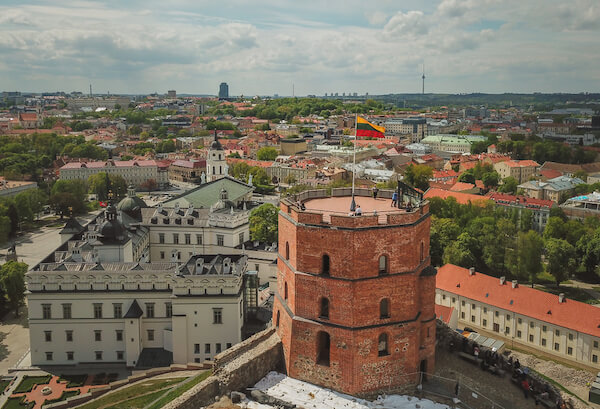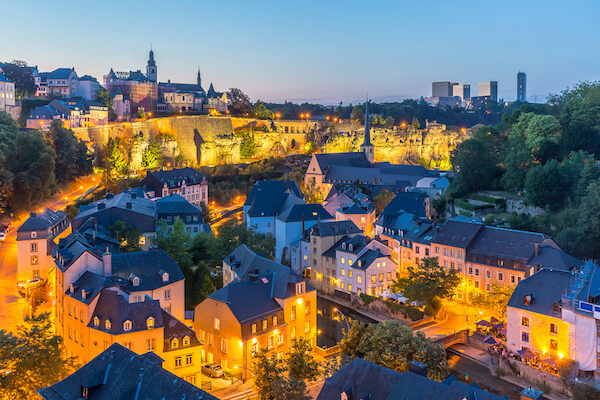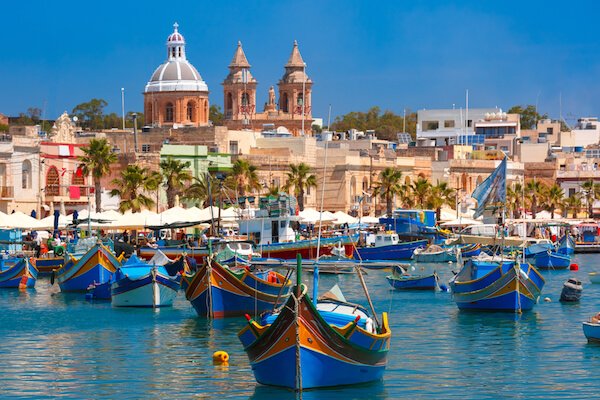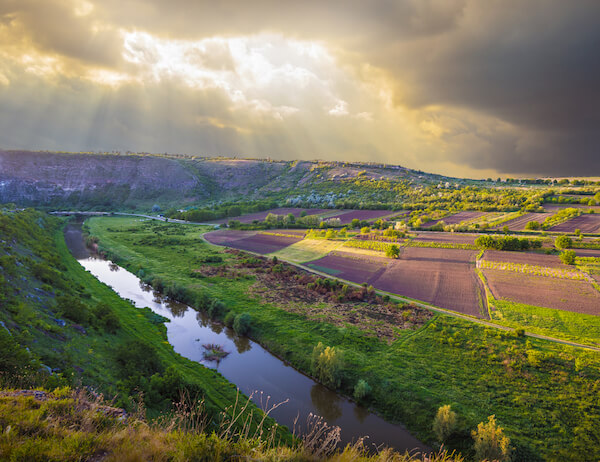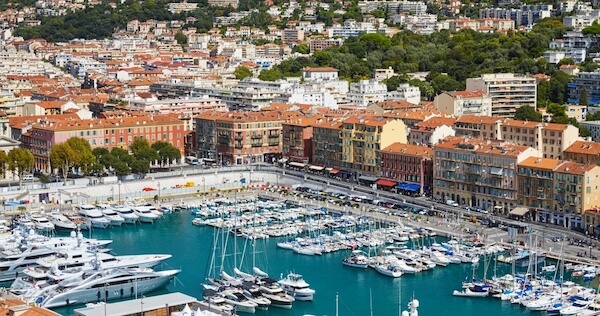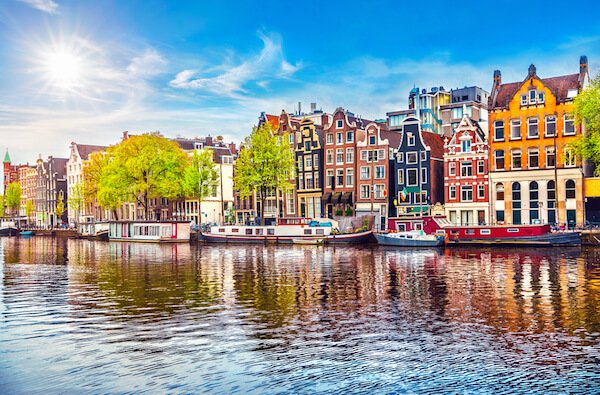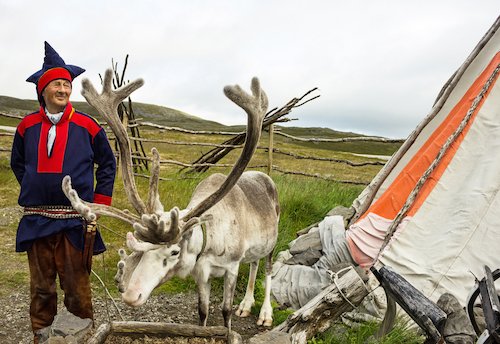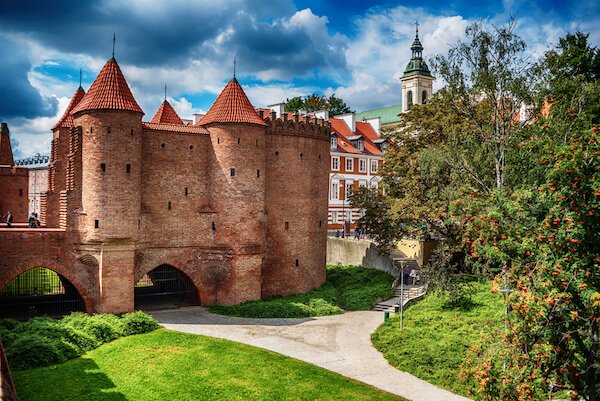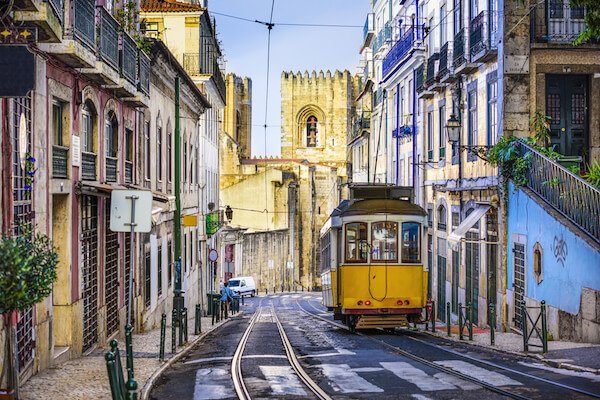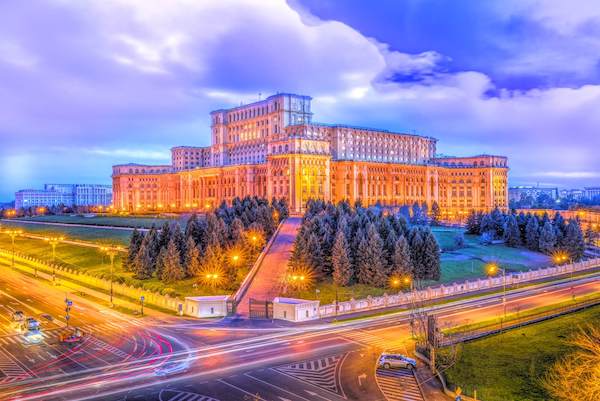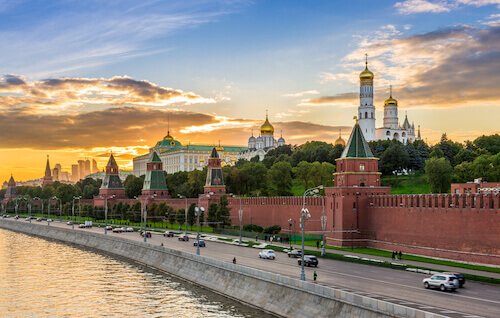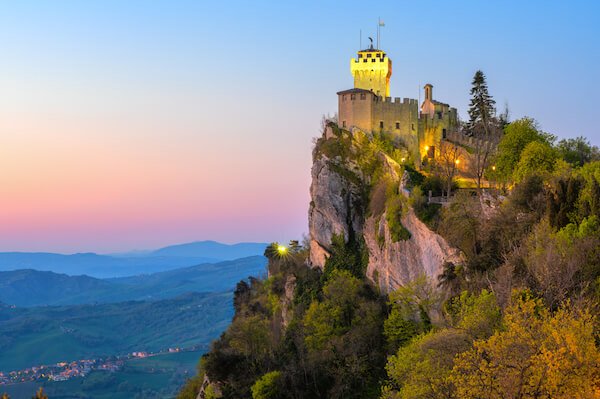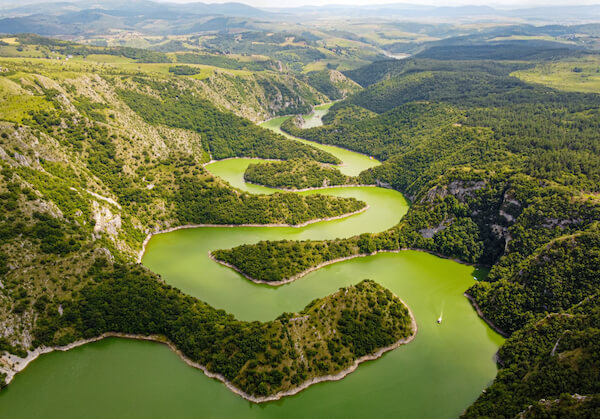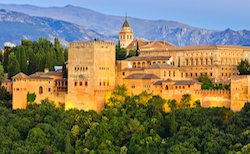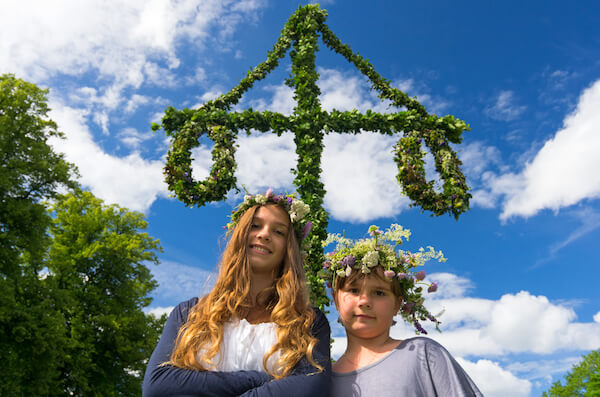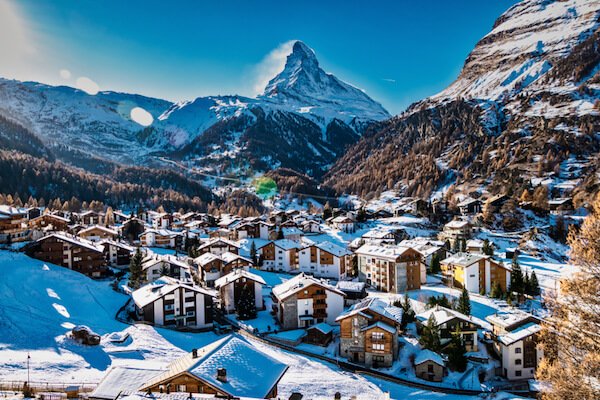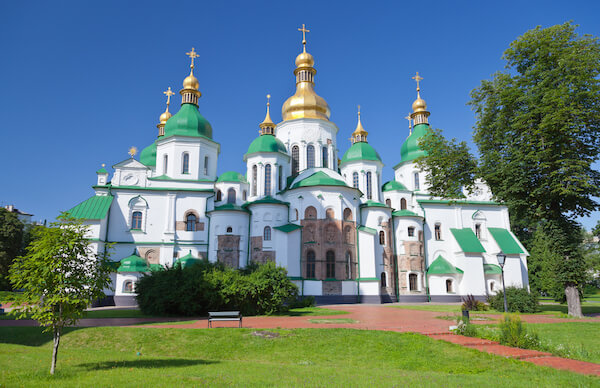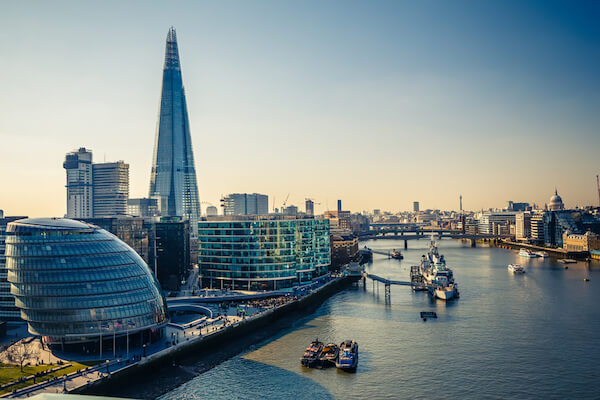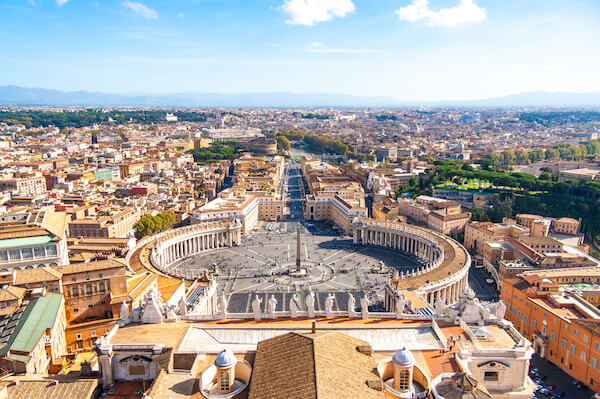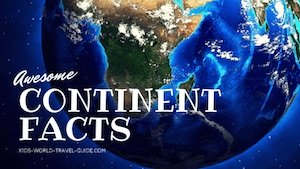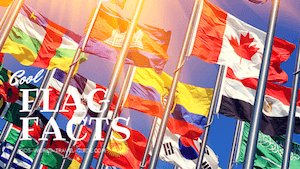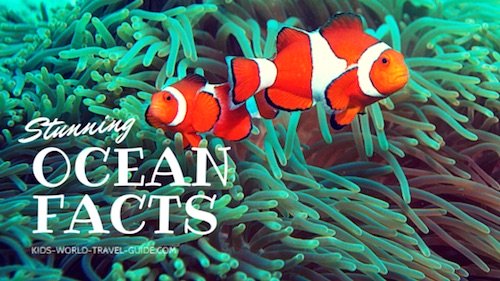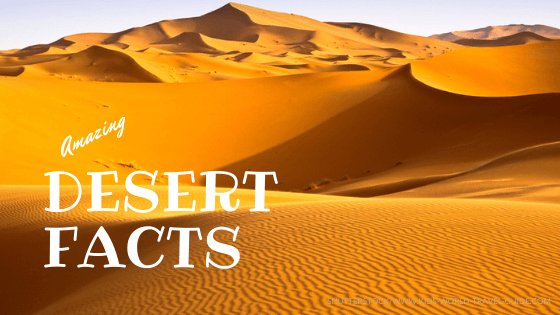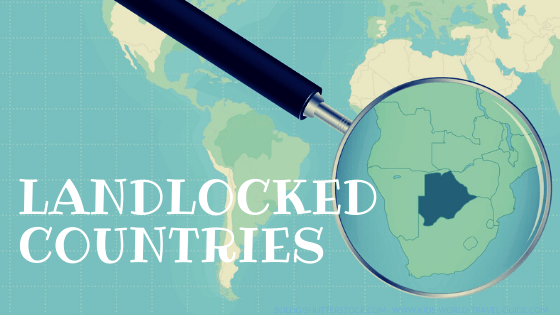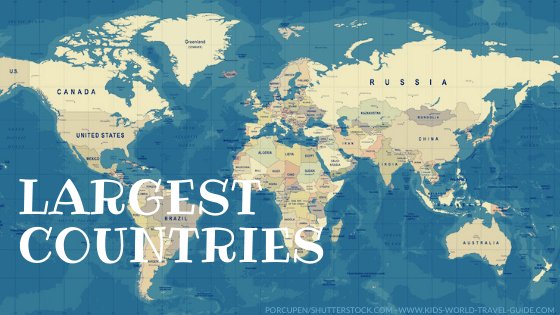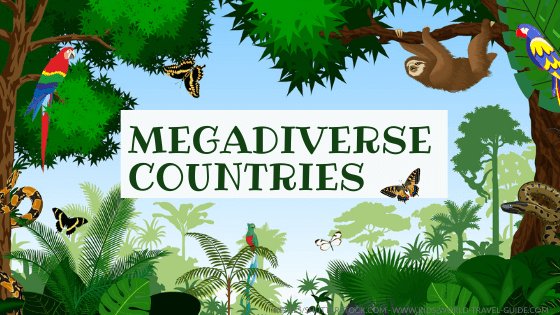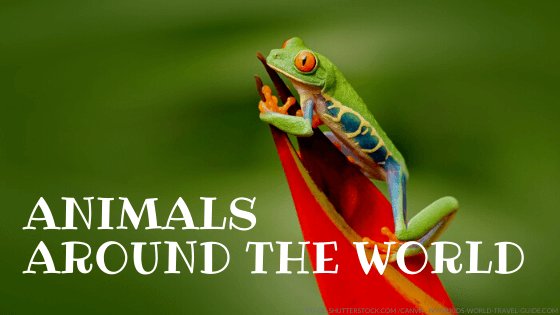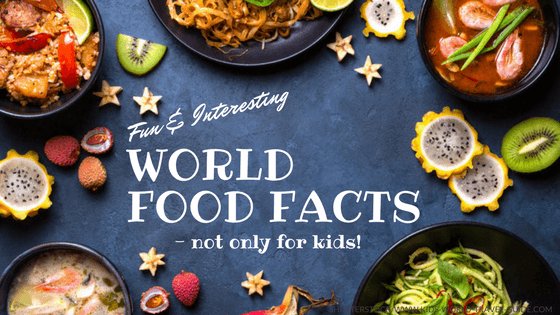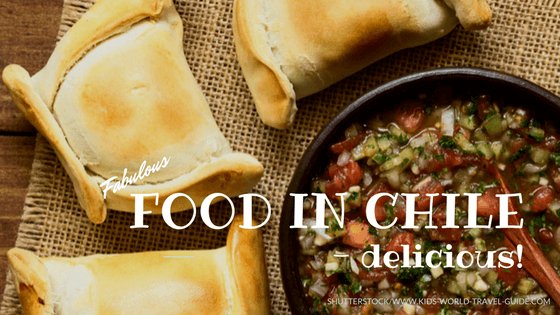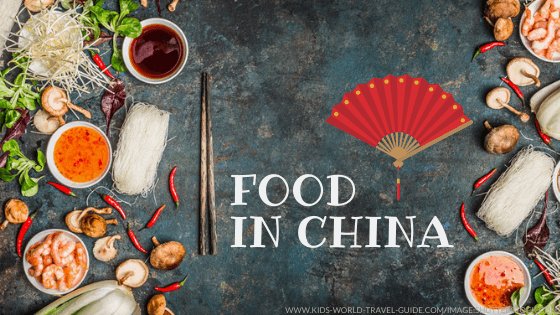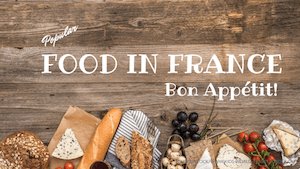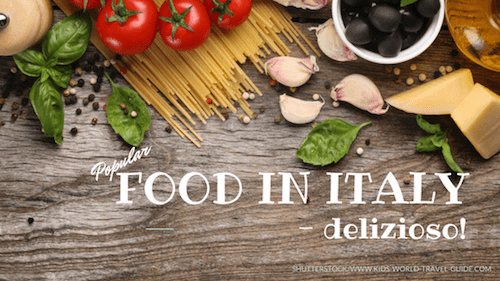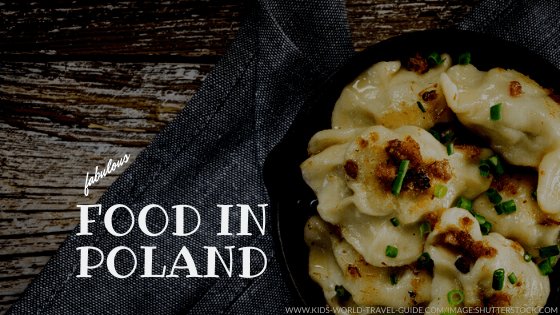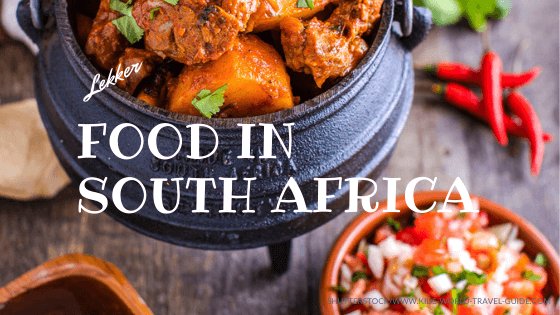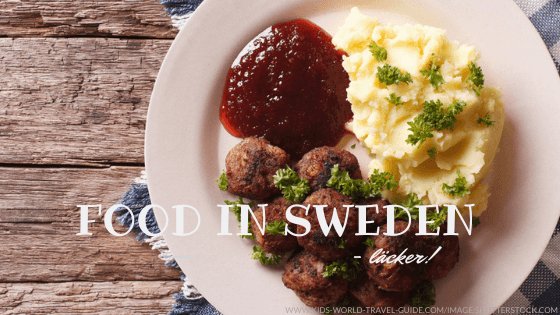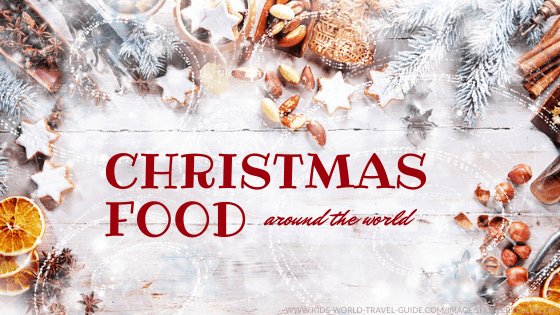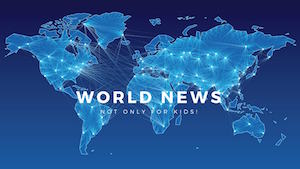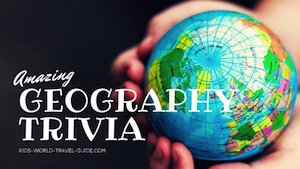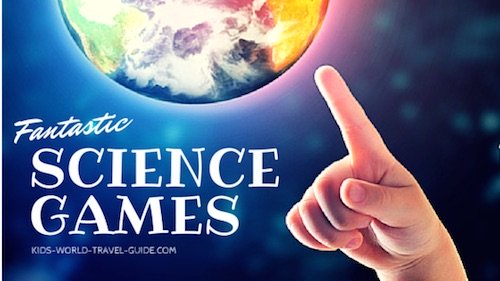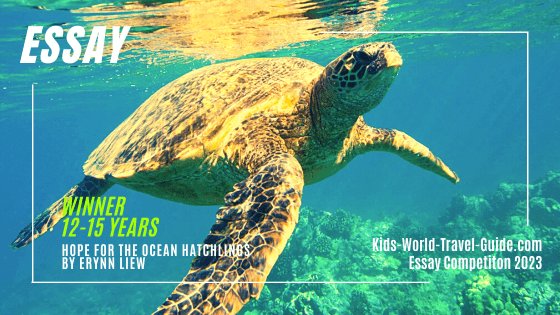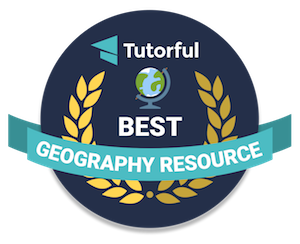Facts about Greenland
Interesting Greenland Facts for Kids
Here are some interesting Facts about Greenland which were chosen and researched especially for kids.
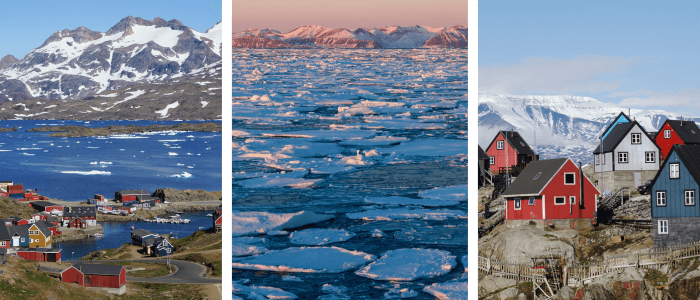 Facts about Greenland: Snow and Ice cover 81% of the island
Facts about Greenland: Snow and Ice cover 81% of the islandGreenland Facts
- Continent: North America (geographically)
- Country: self-governed territory (autonomous region of the Kingdom of Denmark); not an independent country
- Population: 57,000 people (2025)
- Capital: Nuuk is the capital of the autonomous country within the kingdom of Denmark
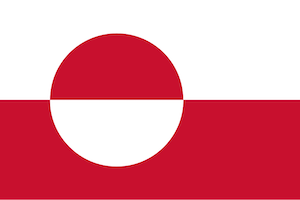 Flag of Greenland
Flag of Greenland- Name: Greenland or Kalaallit Nunaat which means "Land of the People".
- Official language: Greenlandic (Kalaallisut)
- Literacy: 100% can read and write
- Religion: mainly Christians, of these mainly Lutherans (90%)
- Currency: 1 Danish krone = 100 øre
- National Day: "Ullortuneq" is celebrated on 21 June, introduced in 1983
- National Symbols: red and white (national colours) and the national costume, Kalaallisuut
- History: The first people that settled on the island in 2500 BCE but the Norsemen mainly coming from Iceland did not survive in the harsh conditions. In 1000 CE, Inuit people coming from North America settled in Greenland. However, Norway and Denmark continued to claim there were still Norse settlements on the island and claimed the island. They claimed sovereignty over Greenland and christianised the pagan Greenland Inuit. Danish and Norwegian explorers reached the island in the 17th century and Greenland was given to Denmark in 1814 after Norway and Denmark separated. During World War II, when the Germans also invaded Denmark, Greenland opened up to trade with the USA. Greenland was fully included into the Kingdom of Denmark in 1953 and has its own local government. In 2009, the Greenland Act of Self-Government was signed.
- Prime minister: Mute Bourup Egede (since 2021)
- Head of State: Frederik X of Denmark (since 2024)
Greenland Geography
Where is Greenland?
Location of Greenland: Greenland is an island in the Artic region that borders the North Atlantic Ocean as well as the Arctic Ocean. The island is a territory of Denmark in Northern Europe.
The island's landmass sits on the Greenland plate which is part of the North American continental plate. This means that geographically, the island of Greenland is part of the North American continent.
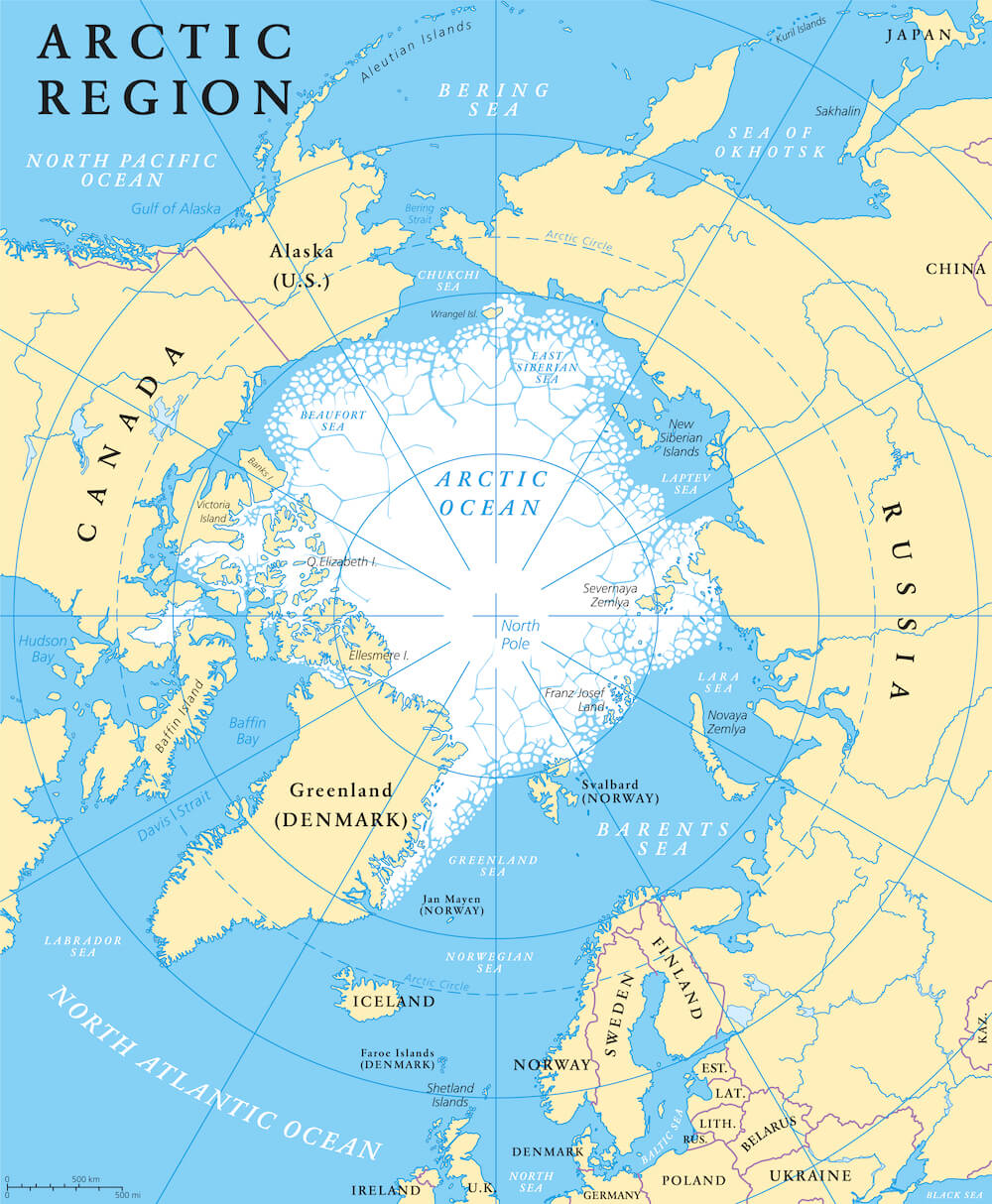 Location of Greenland
Location of GreenlandThe island is to the northeast of Canada and to the west of Iceland but is part of the Kingdom of Denmark that is in the far northeast of the island.
Greenland is located about 3,400 km/ 2,110 miles off the north western coastline of Denmark. Direct flights are only available from Copenhagen or Reykjavik/ Iceland.
Greenland Geography Superlatives
Here are the most interesting geography facts about Greenland:
- Greenland is the world's largest island - not counting Australia which is referred to as a continent. It is one of the over 443 islands in the North Atlantic Ocean that belong to the Kingdom of Denmark! Greenland is about 50 times larger than Denmark and about three times the size of Texas/ USA.
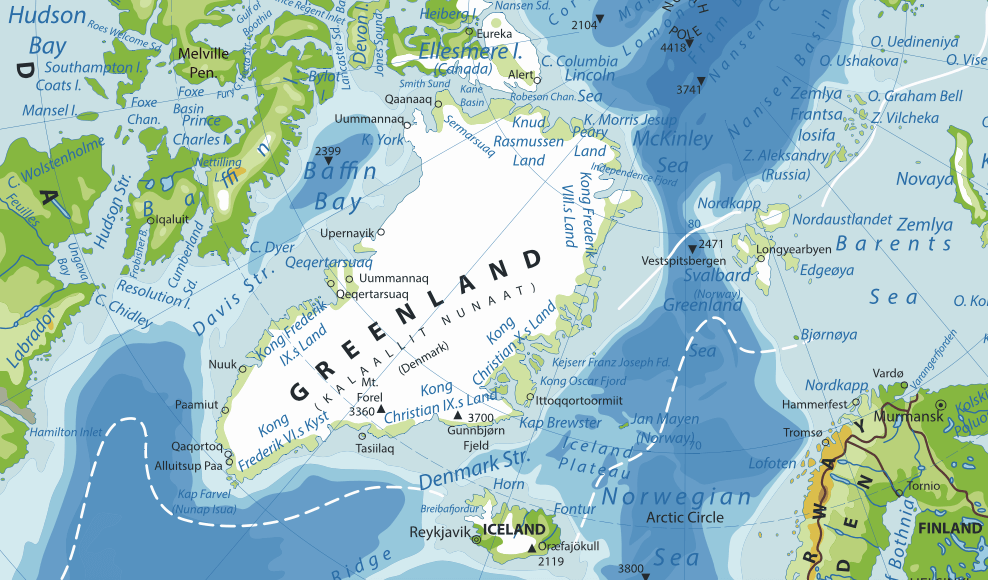 Greenland Physical Map
Greenland Physical Map- In fact, Denmark is a relatively small country and is only about twice the size of the state of Massachusetts/USA or about half the size of Ireland.
- Greenland is not only the world's largest island but also the least densely populated island of our planet.
- About 81% of Greenland is covered by ice and snow and most people live along the coastline. The Greenland Ice Sheet is the second-largest ice sheet in the world and very important for the global climate.
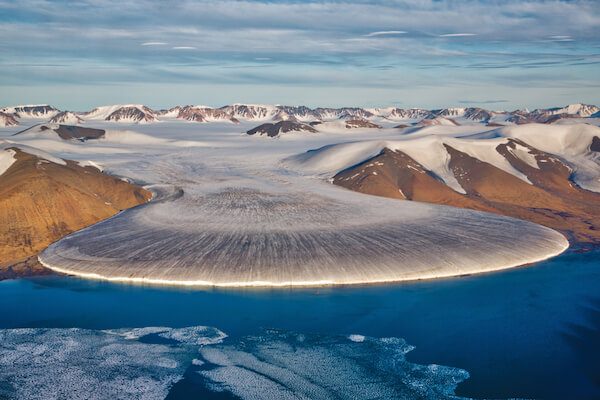 Elephant Foot Glacier in Northeast Greenland
Elephant Foot Glacier in Northeast Greenland- Greenland's highest point is the summit of Gunnbjørn Field in southeastern Greenland. The summit is the highest peak in the Arctic region with 3,694m/ 12,119ft elevation above sea level.
- Northern Greenland's Arctic desert has drier areas than the Sahara desert.
- The Northeast Greenland National Park is not only the largest national park in the world but also the northernmost national park in the world. It houses many unique Arctic species. This national park is 100 times larger than Yellowstone National Park!
- Kap Morius Jessup which is in this huge national park is the northernmost land area in the world
- There are only 17 towns with more than 500 residents in Greenland. Most settlements are very small.
- The main cities and towns in Greenland are the capital city of Nuuk, Sisimiut and Ilulissat. The island is only sparsely populated and almost one third of the people live in the main city Nuuk.
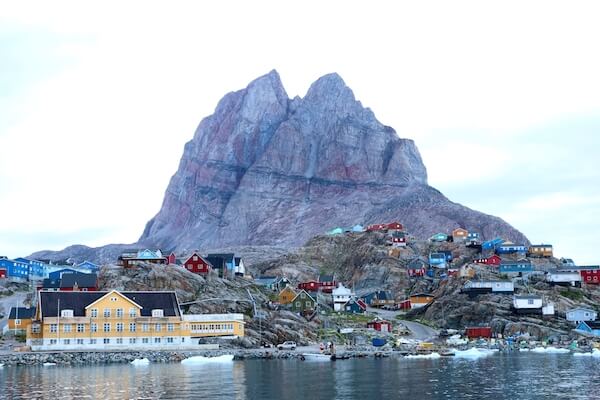 Uummannaq in Northwest Greenland
Uummannaq in Northwest Greenland- Greenland has the northernmost settlements of the world, these include the town of Qaanaaq, formerly known as Thule and the research station at Alert, which is near the North Pole. Less than 1000 people live in these northern settlements.
More Facts about Greenland:
Nuuk
- Nuuk is located on the southwestern coast of Greenland and houses only about 19,000 people. Nuuk is the island's economic and cultural hub. The town was founded in 1728 as a colony by the Danish-Norwegian missionary called Hans Egede. The town's name "Nuuk" comes from the Greenlandic word that means "point of the peninsula".
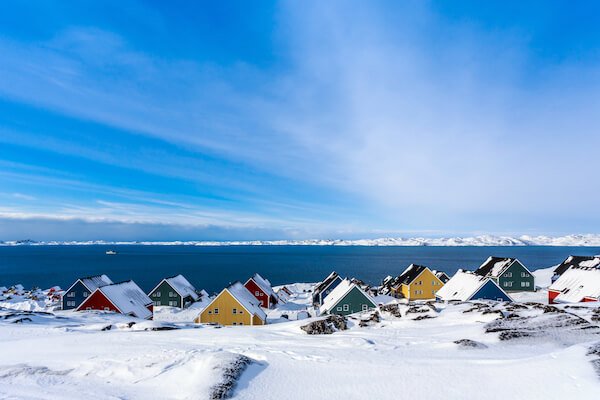 Nuuk in winter
Nuuk in winterDid you know that Nuuk is closer to Washington D.C., the capital city of the USA, than to Copenhagen, the capital city of the Kingdom of Denmark?
Washington DC is about 3259 km/ 2025 miles from Nuuk, whereas Copenhagen is 3534 km/ 2196 miles from the capital of Greenland.
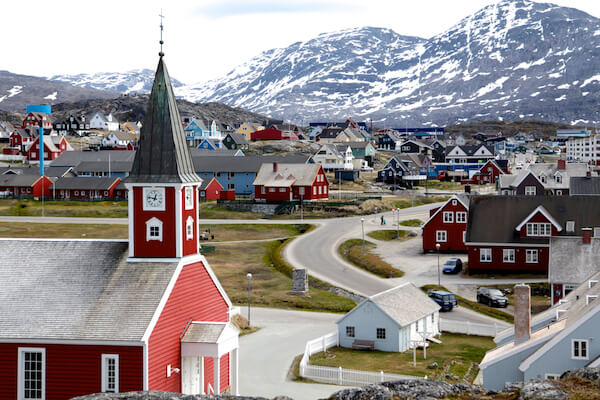 Nuuk town centre with Church of Our Saviour
Nuuk town centre with Church of Our SaviourGreenland People
The population in Greenland is mainly made up of Inuit or Kalaallit people (88%) and the reminder are mainly people of Danish and other European descent. The indigenous people are referred to as Kalaallit and this is the largest ethnic group in Greenland.
Most of the 57,000 people in Greenland live in Nuuk and along the southwestern coastline and along the fjords. Their main traditional festival is celebrated on 21 June, the longest day of the year. Then everybody wears the traditional colourful costume.
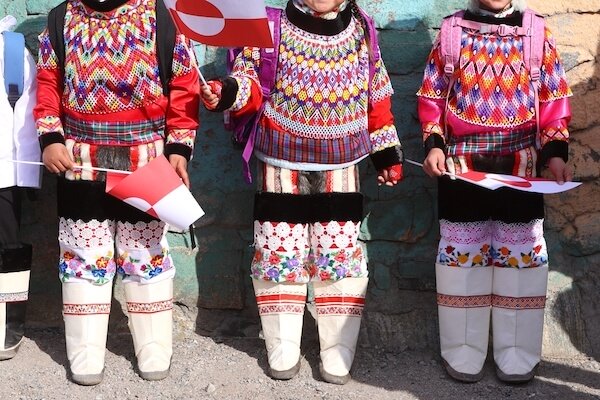 Children celebration in traditional Greenlandic costume - image by Elke Kohler
Children celebration in traditional Greenlandic costume - image by Elke KohlerThe traditional dress consists of an "anorak" of which the top half is decorated. The traditional costume is white and has a colourful bead collar. Each colour has a special meaning. Sealskin and sheepskin are part of the national dress as well.
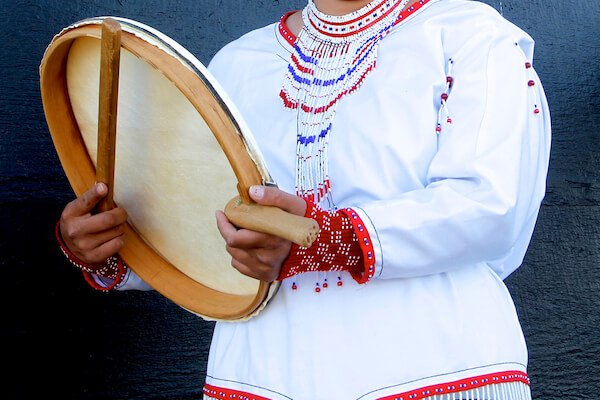 National costume of Greenland and traditional drum
National costume of Greenland and traditional drumThe head of state of Greenland is King Frederik X. (born 1968). King Frederik (the Tenth) is married to Queen Mary, who is originally from Australia. They have four children.
The Greenlandic government is led by Prime Minister Mute Bourup Egede, who is the head of the self-governing territory since 2021.
Greenlandic (Kalaallisut) is recognised as the only official language in Greenland. However, Danish is spoken widely and English is also spoken by many as second language and taught already in primary school in Greenland. Only about 1 in 8 speak Danish as home language. The Greenlandic spoken in most parts of the island is close to the Inuit languages spoken in Canada.
How to say "hello"? The greeting is "aluu" and for goodbye” simply say "baaj".
Musk ox and sheep wool and tupilaks, which are little magical creatures carved out of wood or walrus tusks as well as bone jewellery are fascinating Greenlandic traditional arts and crafts.
The majority of Greenlandic people are Christians and as such Lutheran protestants.
Greenland Facts | Animals in Greenland
Wildlife in Greenland includes reindeer, arctic foxes and musk oxen, polar bears, humpback whales, seals and many more.
There are six species of seals in Greenland. Learn more about the different seals here.
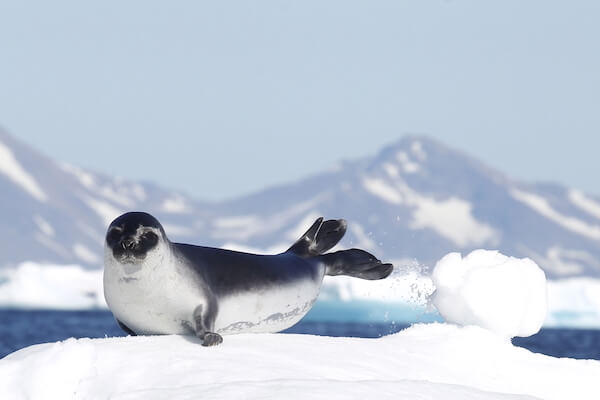 Seal
SealThe Northeast Greenland National Park is the largest national park in the world. The northernmost land area is here as well as the largest ice mass, the Greenland Ice Sheet. If this park's area would be a country, it would be just a bit smaller than Egypt in land area!
The Arctic tern breeds in Greenland and has the longest migration route of any animal! It travels from Greenland to Antarctica to spend the winter there.
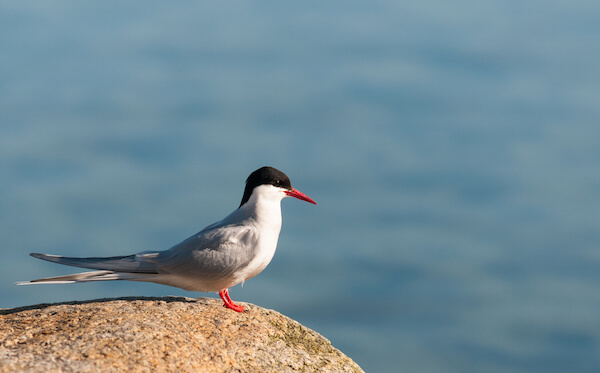 Arctic tern in Greenland
Arctic tern in GreenlandNine land mammal species live in Greenland. Among these are Arctic wolves, Arctic lemmings, stoats (ermines) and wolverines.
The Greenland dog species found here is one of the purest dog breeds. Most of the husky type dogs are kept and trained as sled dogs. The dog puppies you see in the image below, will be trained to pull the sleds over the snowy landscape. The shorthaired dogs are known as strong, independent and very patient dogs but they also are determined and energetic.
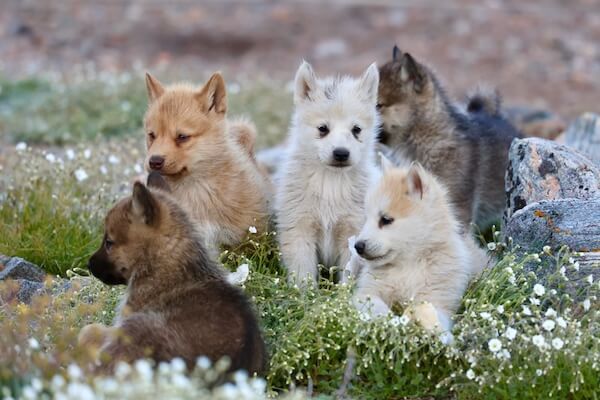 Sled dog puppies
Sled dog puppiesGreenland Landmarks and Attractions
- Midnight Sun: Summer is the time to visit as then the temperatures can reach up to 20° C/ 68° F in the months of June, July and August. This is the time to experience the warm magical light of the midnight sun that does not set from June 3 to July 10 in Sisimut.
- Aurora Borealis or Northern Lights are a wonderful spectacle can best be admired on clear autumn and winter nights. They are visible during the long polar nights, especially in Sisimiut and Nuuk.
- Disko Bay: Western Greenland is a very popular dog sledding and hiking destination during the summer. A large variety of marine wildlife can be encountered in the large bay. There is also a new hydrophone station in Disko Bay which allows people to listen to the rich underwater soundscape live.
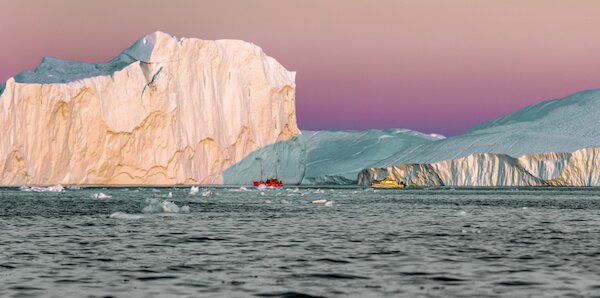 Disko Bay
Disko Bay- Illulisat Icejord: This landscape is amongst the three UNESCO heritage sites of Greenland. The Illusisat glacier is one of the fastest moving glaciers in the world. This is the place where the most renowned scientists come to study climate change.
- Kangerlussuaq: Dog sledding is very popular in Greenland. This is Greenland's most common entry destination for dog sledding adventure travel and experiencing Arctic nature.
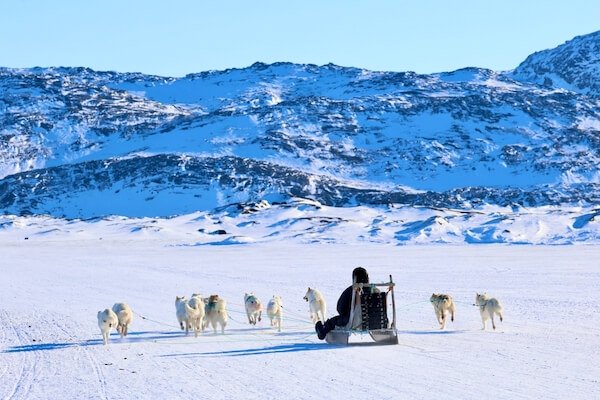 Dog sledding in Greenland
Dog sledding in GreenlandDog sledding in Greenland is known by the local as main way of transportation and hunting for more than 5,000 years. Tourists now can take part in a more leisurely activity in many towns of the Arctic circle and along the eastern coastline.
Facts about Greenland
Economy
The most important economic sectors of the island are are the fishing industry, mining and tourism. Greenland is rich in natural resources such as minerals like zinc, lead, gold, rare earth metals, as well as huge potential oil and gas reserves.
The main agricultural centre of the island is located near Narsaq in South Greenland. The plains here are used for sheepfarming and growing the main crops such as potatoes and turnips as well as fodder crops for the winter.
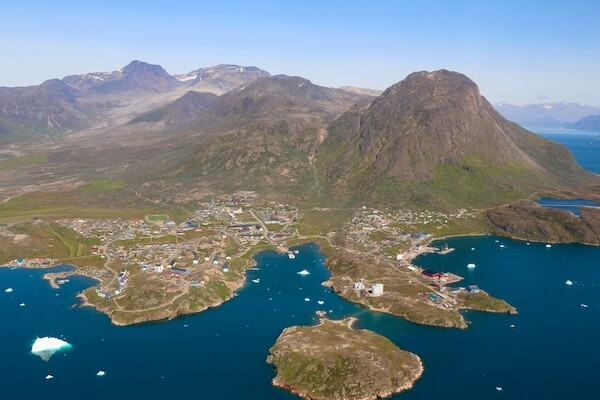 Narsaq in Southern Greenland
Narsaq in Southern GreenlandThe major exports are seafood such as halibut, cod and shrimp. Royal Greenland is a major seafood company that is located here, they specialise in Arctic fish species.
The major export and import partners are Denmark and the EU.
Facts about Greenland | Food
The traditional cuisine is based on hunting and fishing and thus the main dishes use seabirds, whale or seal meat or fish. Muskox, reindeer as well as lamb meats are used in many dishes.
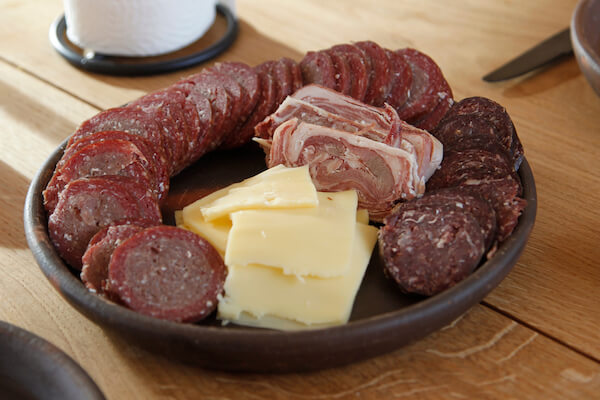 Greenlandic meat platter
Greenlandic meat platter
Greenlandic halibut (fish), huge snow crabs, shrimps and prawns are popular catch.
Many Greenlandish dishes contain potatoes, onions and wild berries such as crowberries and blueberries that are also found in the Arctic.
Many typical Greenlandic dishes contain smoked, salted and dried produce. Amongst the most traditional food is:
- Suaasat: considered by many as the Greenlandic national dish, this thick soup is made with seal meat or fish, potatoes, and onions.
- Kiviak: A unique Inuit fermented dish made from seabirds that are covered and aged in seal skin and then eaten raw.
Resources for Greenland Facts
These are useful resources for Facts about Greenland:
- Central Intelligence Agency. "Denmark" World Fact Book. Updated 27 December 2024. Last accessed 8 January 2025
- Greenland National Museum."Kalaallisuut" NKA.gl. Last accessed 8 January 2025
- Government of Greenland. "Explore Greenland." Visit Greenland. Last accessed 8 January 2025
- Greenland. "National Day." VisitGreenland. Last accessed 8 January 2025
- The Prime Minister's Office. "Greenland." Statsministeriet.dk. Last accessed 8 January 2025
Learn more about the Nordic Countries
Popular Pages
Images on Facts about Greenland for Kids: images are licensed by shutterstock, sxc.hu, wikicommons and own images - Most images by Chris Christopherson/ shutterstock.com
Return from Facts about Greenland to KidsWorldTravelGuide Homepage
***
More about Countries in Europe
Temperature in Celsius
NUUK WEATHERTemperature in Fahrenheit
NUUK WEATHERLike what you read?


